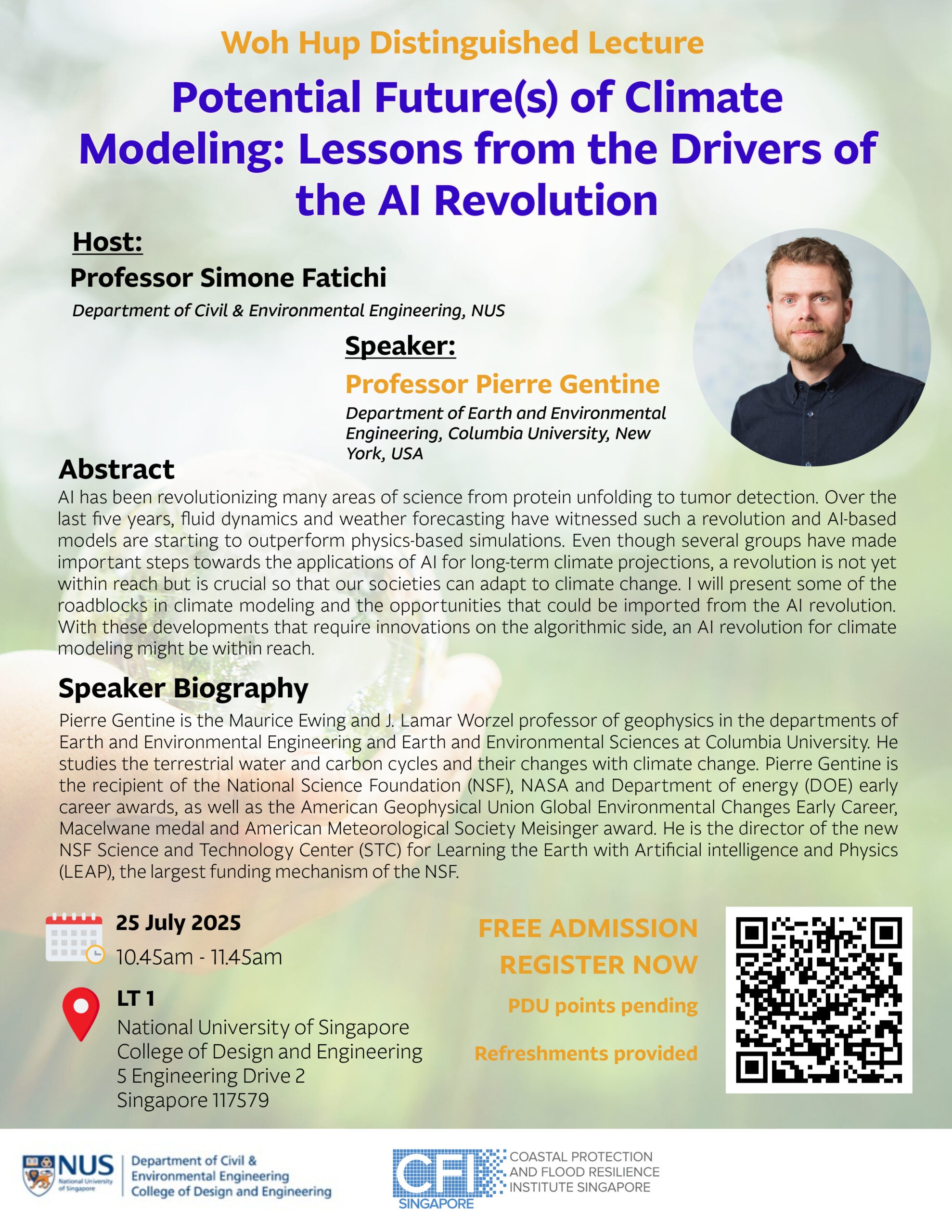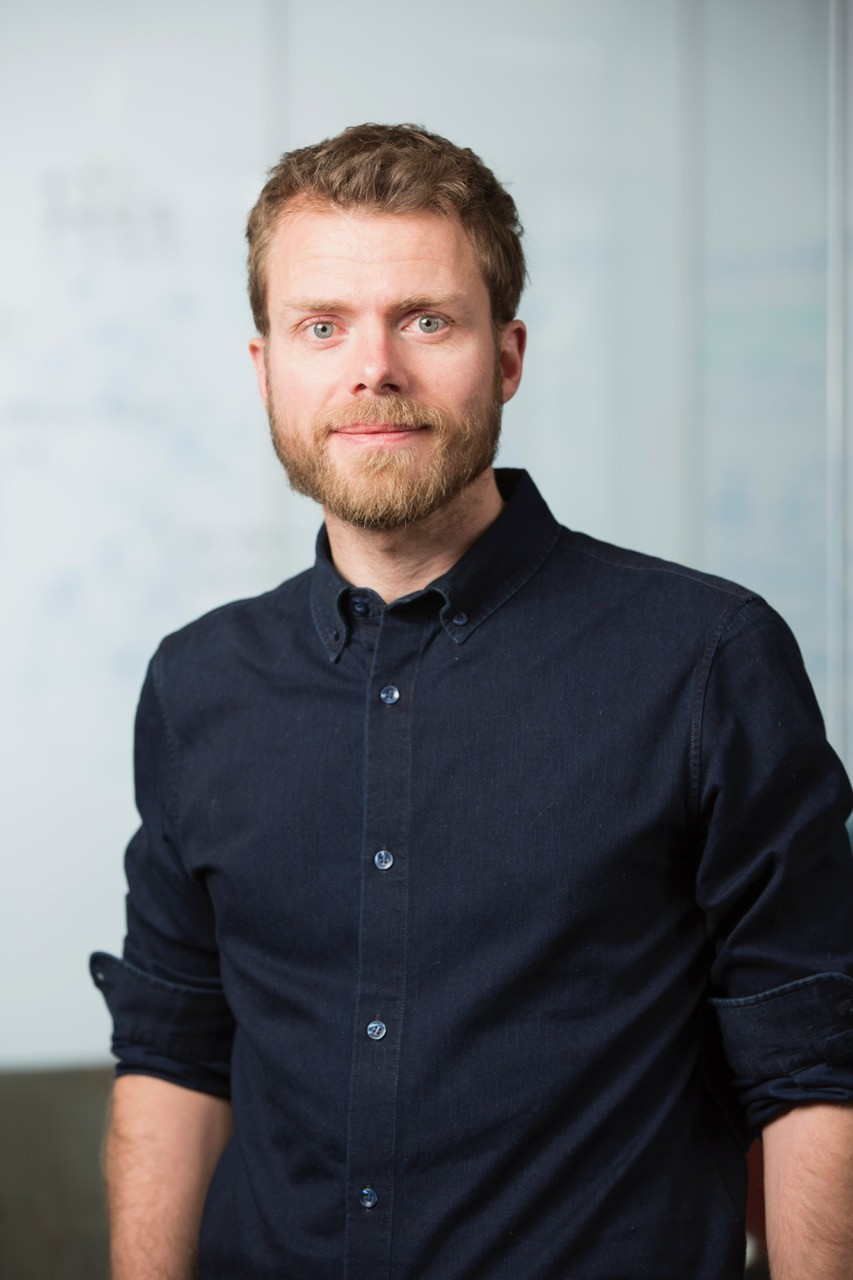
Woh Hup Distinguished Lecture
Potential Future(s) of Climate Modeling: Lessons from the Drivers of the AI Revolution
Hosted by
Professor Simone Fatichi
Department of Civil & Environmental Engineering, NUS
Date/Time:
25 July 2025 | 10:45AM-11:45AM
Venue:
National University of Singapore
LT1
Block E2, Level 1,
5 Engineering Drive 2, Singapore 117579
Notes:
- Refreshments will be served after the seminar.
- Please feel free to reach out at cfisg@nus.edu.sg for any queries.
Seminar has concluded. Please refer to the Event Wrap-Up below.
Event Wrap-Up
We were honoured to host Professor Pierre Gentine from Columbia University for the Woh Hup Distinguished Lecture on “Potential Future(s) of Climate Modeling: Lessons from the Drivers of the AI Revolution.”
In this engaging session, Professor Gentine shared insights on how artificial intelligence is reshaping the landscape of climate modelling — drawing parallels from its success in fields like medicine and genomics, and exploring its transformative potential in weather prediction, fluid dynamics, and Earth system science.
The session drew a total of 65 participants; comprising of researchers, students, and professionals across disciplines, and sparked valuable discussion around the challenges and opportunities of integrating AI into environmental modelling.
We thank Professor Gentine for his thought-provoking lecture and look forward to continuing conversations around advancing climate resilience through innovation.
Abstract
AI has been revolutionizing many areas of science from protein unfolding to tumor detection. Over the last five years, fluid dynamics and weather forecasting have witnessed such a revolution and AI-based models are starting to outperform physics-based simulations. Even though several groups have made important steps towards the applications of AI for long-term climate projections, a revolution is not yet within reach but is crucial so that our societies can adapt to climate change. I will present some of the roadblocks in climate modeling and the opportunities that could be imported from the AI revolution. With these developments that require innovations on the algorithmic side, an AI revolution for climate modeling might be within reach.
About Speaker

Prof. Pierre Gentine
Department of Earth and Environmental Engineering
Columbia University, New York, USA
Pierre Gentine is the Maurice Ewing and J. Lamar Worzel professor of geophysics in the departments of Earth and Environmental Engineering and Earth and Environmental Sciences at Columbia University. He studies the terrestrial water and carbon cycles and their changes with climate change. Pierre Gentine is the recipient of the National Science Foundation (NSF), NASA and Department of Energy (DOE) early career awards, as well as the American Geophysical Union Global Environmental Changes Early Career, Macelwane medal and American Meteorological Society Meisinger award. He is the director of the new NSF Science and Technology Center (STC) for Learning the Earth with Artificial Intelligence and Physics (LEAP), the largest funding mechanism of the NSF.

